Study Abroad for the Full Year! - BCA Quito - University of San Francisco de Quito Past Review
By Tori R (PSYCHOLOGY., Juniata College) - abroad from 07/21/2012 to 05/17/2013 with
Ecuador Study Abroad Reflections: Comprehensive Reviews of Past Programs
I learned so much about myself as an individual, about Latin American history and culture, and about working in development. Definitely worthwhile.
Review Photos
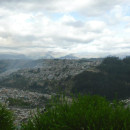
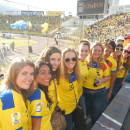
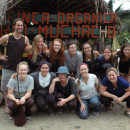
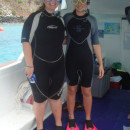
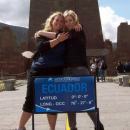
Personal Information
| How much international exposure did you have prior to this program? | 2 weeks - 1 month |
Review Your Program
|
* Overall educational experience
Academic rigor, intensity, resources, etc. |
The BCA program is fantastic. It's the perfect combination of group scheduled activities, cultural exploration, and guidance on independent volunteering and travel. I would definitely recommend doing a full academic year; you won't want to leave! |
|
* Host Country Program Administration
On-site administration of your program |
The entire team was fantastic. They had me placed in a volunteer situation within my first week, which later developed into an internship. Daniel, Miguel Andres, and Martha were all knowledgeable about Ecuadorian culture, but still willing to help out timid gringos! I had to switch host families, but they were so understanding and always available to help. |
|
* Housing:
How satisfied were you with your living arrangements? |
Host family living can be a bit tough, but it is a worthwhile experience. As a very introverted person, it was very difficult to adjust to Ecuadorian family routines. That said, it was a great for cultural understanding and getting a real taste of Ecuador. I lived in housing for the organization I was volunteering with second semester, which was amazing beyond belief. We were right in the middle of Quito's historical center. BCA was very flexible with the accommodations. |
| * Food: |
Get used to rice! The host families try to accommodate gringo tastes (some better than others). My experience was personally awesome - my host brother was in chef school and my mom was an excellent cook! The cuisine of Ecuador itself is varied. Be sure to try filleted fish if you visit the Oriente on your own. |
|
* Social & Cultural Integration:
How integrated did you feel with the local culture? |
My volunteering experience was great for integration. I don't feel that I got a lot of it at the host university, but my internship and host family more than made up for it. |
|
* Health Care:
How well were health issues addressed during the program? |
You will need a yellow fever vaccine for one of the excursions. However, it is available from the university for about $15 - don't worry about getting it in the U.S. |
| * Safety: |
I lived in a more dangerous neighborhood during the second semester, but the safety allowance was more than enough to get me taxis whenever I needed them. Use commonsense and avoid dangerous areas, and you will be good to go.The worst that happened to me was my shoes were stolen off the beach. I have friends with more scary experiences, but I luckily managed to avoid any mishaps. In general: don't carry a big bag around, be extra careful in coastal areas, and always take a taxi when in doubt. For the ladies, I found I was much more comfortable when walking with a male friend at night, even if he wasn't Ecuadorian. |
| If you could do it all over again would you choose the same program? |
Yes
|
Finances
|
* Money: How easily were you able to live on a student's budget?
(1 = not very easy/$200+ on food & personal expenses/week, 2.5 = $100/week, 5 = very easily/minimal cost) |
Quito is so inexpensive, and BCA gives you a stipend at the beginning of every month! |
| Not including program expenses, about how much money did you spend on food and other expenses each week? | $75.00 |
| Do you have any general money-saving tips for future study abroad participants? | -If you study abroad for the full year, definitely do independent housing the second semester. I never had to withdraw money! |
Language
| * Did your program have a foreign language component? | Yes |
|
How much did the program encourage you to use the language?
0 = No encouragement, 5 = frequent encouragement to use the language |
|
| How would you rate your language skills at the beginning of the program? | Beginner |
| How would you rate your language skills at the end of the program? | Advanced |
| What was the highest level language course you had completed prior to departure? | Spanish 260 - Intro. to Latin America |
| How many hours per day did you use the language? | |
| Do you have any tips/advice on the best ways to practice the language for future study abroad participants? | - Take the Spanish pledge! Just do it! - Don't rely on USFQ to help with your Spanish. Volunteering is the best practice. - Don't be afraid to make mistakes. It's the only way you learn. |
Other Program Information
|
* Where did you live?
Select all that apply |
|
|
* Who did you live with?
Select all that apply |
|
|
* Who did you take classes with?
Select all that apply |
|
| About how many local friends did you make that you will likely keep in touch with? |
A Look Back
| * What did you like most about the program? |
|
| * What could be improved? |
|
| * What do you know now that you wish you knew before going on this program? | Take a lighter class load in favor of doing more volunteering and internship activities. Work out internship credit with your home university before you leave. Don't worry about finding an organization - there are tons! |
Reasons For Studying Abroad
| To help future students find programs attended by like-minded individuals, please choose the profile that most closely represents you. |
The Nearly Native or Trail BlazerCraving the most authentic experience possible, perhaps you lived with a host family or really got in good with the locals. You may have felt confined by your program requirements and group excursions. Instead, you'd have preferred to plan your own trips, even skipping class to conduct your own 'field work.' |








